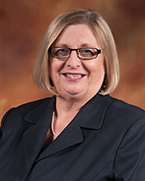Teachers need smaller classes, time to collaborate and meaningful training to make a difference
American education reforms of the past decade have not worked. Student achievement is not appreciably improving. Frequent high stakes testing allows less time to actually teach; teachers are evaluated on student test scores for things they were never told to teach; and teachers fear the “next big thing” to come from Lansing or Washington.
Charter schools--once touted as a panacea-- on average, do no better than their traditional counterparts, with little transparency as to how public dollars are spent. For-profit cyber schools are a disaster, lining the pockets of CEOs and investors with taxpayer dollars while producing abysmal rates of graduation and achievement. Often, the "reformers" get so-called reforms passed into law, and then, when the "reforms" do not work, they blame the teachers.
It's obvious why few Michigan teachers now suggest their students consider teaching as a profession.
High-quality research about what works in education is abundant. Countries like Finland embrace it, with remarkable results. American policy-makers ignore it.
In the 1970's, the U.S. led the world in nearly every education standard ; Finland was mediocre at best. Now, by many international measures, Finland leads the world in public education. What's its secret? Their leaders read the research on education, usually done at American universities, and they follow it. American policymakers seem to prefer to make education policy based on bombast and ideology.
Finland incorporates rigorous teacher selection and training. While our school districts do provide professional development, it is often sporadic and disconnected. Most importantly, teachers need to be given the time to incorporate what they have learned into their professional practice.
Linda Darling-Hammond writes: "In Finland, like other high-achieving nations, schools provide time for regular collaboration among teachers on issues of instruction. Teachers in Finnish schools meet at least one afternoon each week to jointly plan and develop curriculum, and schools in the same municipality are encouraged to work together to share materials. Time is also provided for professional development within the teachers’ workweek. As is true in many other European and Asian nations, nearly half of teachers’ school time is used to hone practice through school-based curriculum work, collective planning, and cooperation with parents, which allows schools and families to work more closely together on behalf of students."
Finland has smaller class sizes. Students who receive individual attention perform better on every measure of student achievement, including standardized tests. Small class size is even more important when teaching students from disadvantaged backgrounds.
Finally, there is one new idea on the Michigan education reform front that has merit — education audits. Similar in concept to financial audits, these audits examine the academics and operations within a school district. It is a review of all aspects of the district including curriculum, administration, teachers, support staff and parental involvement. Once areas of weakness are identified, they can be addressed.
Improved professional development for teachers and smaller class sizes are not new ideas. The link between student performance and these two interventions are undeniable. Include education audits to identify a district’s strengths and weaknesses and Michigan could once again lead the way in public education.
Michigan Education Watch
Michigan Education Watch is made possible by generous financial support from:
Subscribe to Michigan Education Watch
See what new members are saying about why they donated to Bridge Michigan:
- “In order for this information to be accurate and unbiased it must be underwritten by its readers, not by special interests.” - Larry S.
- “Not many other media sources report on the topics Bridge does.” - Susan B.
- “Your journalism is outstanding and rare these days.” - Mark S.
If you want to ensure the future of nonpartisan, nonprofit Michigan journalism, please become a member today. You, too, will be asked why you donated and maybe we'll feature your quote next time!


 Gretchen Dziadosz is executive director of the Michigan Education Association, the state’s largest teachers’ union
Gretchen Dziadosz is executive director of the Michigan Education Association, the state’s largest teachers’ union
